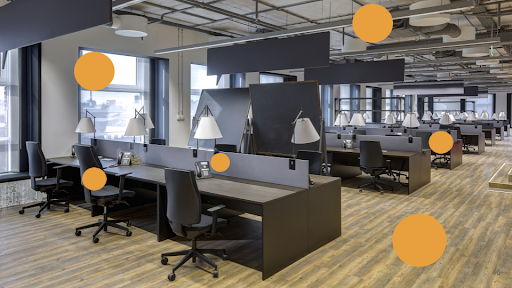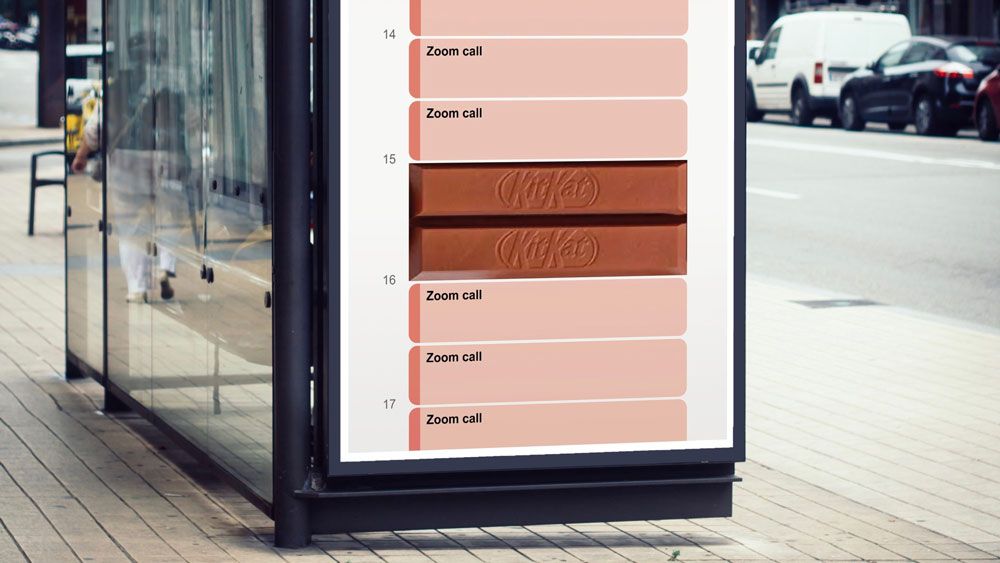[fusion_builder_container hundred_percent=”no” equal_height_columns=”no” hide_on_mobile=”small-visibility,medium-visibility,large-visibility” background_position=”center center” background_repeat=”no-repeat” fade=”no” background_parallax=”none” parallax_speed=”0.3″ video_aspect_ratio=”16:9″ video_loop=”yes” video_mute=”yes” border_style=”solid” flex_column_spacing=”0px” type=”legacy”][fusion_builder_row][fusion_builder_column type=”1_1″ layout=”1_1″ background_position=”left top” background_color=”” border_color=”” border_style=”solid” border_position=”all” spacing=”yes” background_image=”” background_repeat=”no-repeat” padding_top=”” padding_right=”” padding_bottom=”” padding_left=”” margin_top=”0px” margin_bottom=”0px” class=”” id=”” animation_type=”” animation_speed=”0.3″ animation_direction=”left” hide_on_mobile=”small-visibility,medium-visibility,large-visibility” center_content=”no” last=”true” min_height=”” hover_type=”none” link=”” first=”true” type=”1_1″][fusion_text]
Have you ever experienced a time where you felt like you didn’t fit in? Take a few seconds, and think about that moment.
Now, imagine that moment happened every — single — day of your life. That is how life sometimes feels to me, and that is because I am autistic.
When I board a train, I see “normal” people sitting down in carriages – you know – what you’re supposed to do on a high-speed rail line. You would be very unlikely to find me there.
Instead, I’ll be avoiding the Brompton cyclist with their fresh pearls of sweat dripping slowly to the carriage floor. I’ll be avoiding the person who has decided that the commute is a good time to cut their fingernails. I’ll be avoiding — well, pretty much everyone.
If I had a pound coin for every time I was told “there are plenty of seats left in the carriage, love” by a genial train conductor, I would be a very rich woman. A very rich woman, hiding in the vestibule area between carriage D and carriage E.
OK, so we diverged onto a whole other topic there. But my example about trains actually helps me to explain a few things.
As I mentioned, I’m autistic. As in, I am a person on the autism spectrum. We’ll cover more of this later, but when it comes to trains – I find the sounds, smells, lights and social contact – all pretty triggering.
Sometimes, when I am wistfully looking at a lovely comfortable seat in a carriage, from outside the doorway that opens and shuts on its own accord throughout the journey, I wonder why I couldn’t just be “normal”.
Why is it that all these passengers are happy to sit with the sweaty Brompton cyclist or the dreaded nail clipper?
But then, I remember – it isn’t just me. Being autistic, I fall into a group of people who identify as being neurodiverse.
ACAS explains that “Neurodiversity refers to the different ways the brain can work and interpret information. It highlights that people naturally think about things differently. Those who are neurodiverse may have different interests and motivations, and are naturally better at some things and poorer at others.”
Let’s get back on the train for a moment. Most people on that train are what I’d describe as “neurotypical”, meaning that their brains function and process information in the way society expects.
Yet one in seven (or over 15%) of people in the UK are neurodivergent. So that’s one in seven passengers on the train that learn and process information differently. They may be autistic, like me. Or they may have had an ADHD, Dyslexia or Dyspraxia diagnosis – or, a combination of these.
All of these forms of neurodivergence are a hidden disability. If one in seven people in the UK is neurodiverse, you can expect that disability is hidden in every part of your life.
The purpose of this article isn’t to just talking about my experience on trains, even though I secretly wish that carriages were more like the compartments on the Hogwarts Express and journeys were complete with Chocolate Frogs and Bertie Botts Every Flavour Beans.
No. My talk today is to increase awareness. Acceptance. Inclusivity. Because – maybe I don’t need to fit in when I was born to stand out.
Neurodiversity in focus
In the run-up to recording this presentation for BrightonSEO 2021, I asked if any of my neurodiverse contacts would be willing to be referenced in this talk. Let it speak volumes that some of my neurodivergent peers were too uncomfortable to be included – in the case being named could negatively affect their career in SEO.
In this case, hidden disabilities remain hidden. Hidden in your agency, or your in-house team. We have to remember that one in seven people in the UK are neurodiverse.
Now I have to ask: how many people are in your team or company? I’ll let you do the math on how many neurodivergent individuals you may be working alongside.
As I mentioned, I’m autistic. Current estimates suggest that 1-2% of the UK population are autistic. But the data is heavily skewed towards male diagnosis; the National Autistic Society revealed that there are three times as many men than women with a diagnosis.
But what about the other forms of neurodiversity?
It is estimated that about 4% of the UK population have Attention Deficit Hyperactivity Disorder, which is more commonly referred to as ADHD.
Up to 5% of the UK population are dyspraxic.
And 10% of the UK population are dyslexic.
At this point, it will probably help to talk about each form of neurodiversity in closer detail, but it’s important to remember that spectrum disorders are exactly that – a spectrum. Each person will have their own unique traits and characteristics.
Autism
Let’s start with autism. Autism impacts how a person perceives the world and interacts with others, which can make it difficult for people like me to pick up social cues and interpret them.
Social interactions can be difficult as we can have difficulty ‘reading’ other people and expressing our emotions. We can find change difficult and uncomfortable.
But autistic people may find they have superpowers too. People on the autistic spectrum are often very thorough in their work, punctual and rule observant.
ADHD
What about ADHD? It can affect a person’s ability to control attention, impulses and concentration, and can cause inattention, hyperactivity and impulsiveness.
ADHD superpowers include being good at completing urgent, or physically demanding tasks, pushing on through setbacks and showing a passion for their work.
Dyspraxia
Dyspraxia relates to issues with physical coordination, and for the most, organisation of thought. People with dyspraxia may appear clumsy or have speech impediments and might have difficulties with tasks requiring sequencing, structure, organisation and timekeeping.
People with dyspraxia often have good literacy skills and can be very good at creative, holistic, and strategic thinking.
Dyslexia
Dyslexia is a language processing difficulty that can cause problems with aspects of reading, writing and spelling. People with dyslexia may have difficulties with processing information quickly, memory retention, organisation, sequencing, spoken language and motor skills.
People with dyslexia can often be very good at creative thinking and problem solving, story-telling and verbal communication.
In my network
Now we know a little bit more about the forms of neurodiversity, let me talk you through what this looks like practically, just within my own social circles.
Within my family network, my daughter is showing traits of autism and ADHD at age three. My mother is autistic, and so was my late grandfather.
And within SEO, I guarantee there are more neurodiverse peers than you’re aware of. This is because some people would prefer not to disclose a disability, and some will not be aware that they’re neurodiverse. For me, this realisation didn’t come until my 30s.
Diagnosis for spectrum disorders remains a problem, particularly for women. Remember there are three times as many men diagnosed with autism than women, and women like me often seek a diagnosis as an adult when it has been missed in childhood.
I’m a good example. I was a child who collected hundreds of Beanie Babies and used many rolls of camera film taking photos of my collection, and still, I didn’t get flagged as potentially being a bit different to my classmates.
But as I mentioned, we do have peers in our SEO community that identify as neurodiverse. People like Vicky Mills (@pangolinks), an SEO Consultant at Salt Agency, and the wonderful Jennifer Hoffman (@_JHoff_). Add to that list Jill Quick (@jillquick) whose support ultimately led to this presentation being what it is. Jill – co-founder of the Colouring in Department is dyslexic, along with the founder of Mobile Moxie, Cindy Krum (@suzzicks). And another familiar name is Arnout Hellemans (@hellemans) who has ADHD.
Building inclusivity
OK, so we exist. But how can we make our industry a safe place where people don’t need to worry about hiding their neurodivergence for the fear of it impacting their career?
You will notice that the people who were willing to share their names are largely founders and self-employed contractors. So we must ask ourselves whether workplaces are set up to accommodate junior or mid-level neurodiverse employees.
What more can we do?
Remote work
The timing of this presentation means that I can’t neglect to talk about the office vs remote work debate. And before you start rolling your eyes at your screen, I come to the debate with the fresh perspective of a person with autism.
The reason this debate gets so heated is because each person has a personal preference for what is right for their own personality and characteristics. For example, an extrovert may crave more social contact to top up their energy levels, versus an introvert that would prefer more time alone.
I think that this is likely too simplified though. It isn’t one thing or another – which is why the hybrid model may be a preference for many businesses going forwards. Yet, I’d still urge you to consider how you shift into the new phase of working after Covid-19 restrictions ease.
For example, being autistic, I can find change difficult, and I like to retain an element of control over my working environment. Going straight back into an office five days a week would make me incredibly anxious and unproductive.
Whatever the plans for the future, consider that some will be ready to jump in straight away, and others will take a longer period to reintegrate. Empathy for employees and colleagues will be particularly important this year, so take a moment to step into someone else’s shoes to see the situation from their perspective.
Office life
When the time comes to have more time in an office or hub environment, there are some practical considerations that can be made too.
Many offices take the open plan approach for cost-cutting, I mean, collaborative, working. And whilst the whole office is unlikely to be reconfigured any time soon, small adaptations can make a big difference.
I tend to get distracted and overwhelmed in an open-plan office. It’s like a sensory overload with phones ringing, people stopping by for a chat, the strip lighting, and endless questions on a Friday about what I’m up to that weekend, and undoubtedly followed up on Monday with more questions about what I got up to that weekend.
In order to use my superpowers of thorough and careful work, I need focus time. Or rather, any employee who wants to create anything of substance needs focus time. I recently read Cal Newport’s Deep Work book which reinforces this message.
Having a quiet space to escape to when it all gets a little too much is very valuable. In previous roles, I’ve taken my laptop outside the office to sit on a bench. Or I’ve grabbed a meeting room for a few hours to power through a technical audit without honing in on the sound of a coworker sniffing halfway across the room.
In some workplaces, I’ve felt like it’s OK to leave my desk to do this. In others, I’ve had comments from managers asking where I’d been for the past hour – and usually, those managers were the ones who liked micromanaging and periodically peering at my screen. Don’t be that manager; we don’t like you.
I couldn’t explain why I needed to get away from the desk, other than the feeling that I absolutely had to. I wasn’t aware at this time that I was having an autistic shutdown, where I was overwhelmed by situations and triggers.
Networking
Because I experience similar sensory overload at conference venues and meet-ups, I always appreciate when an organiser has created a quiet area so I can decompress. BrightonSEO does this when the conference is based in the Brighton Centre, as other areas can get very busy in between sessions.
During sessions themselves, I’m a bit slower to process information when I’m listening to it, so I dream of the day when all slides have captions, so I could read along instead as I get more fatigued in the afternoon.
Online comms
Of course, a lot of communication is done online right now. And in ways, this suits me better. There is no enforced eye contact which I find incredibly awkward in-person, and I can doodle or click a pen without looking rude. Since joining Re:signal in November, I’ve been a part of three Zoom client pitches and won all three of them.
But I do find video calls exhausting, and I won’t be the only one. This mock KitKat ad tickled me because some days do feel like jumping between a video call to video call, which is a lot of active listening and having to be “always-on”.
Watch the recording of my BrightonSEO session about neurodiversity following this link.
There are some online networking platforms that I’m just never going to be a part of. I like Twitter because I can dip in and out, and don’t have to be there at a certain time to catch the action.
Right now, this applies to Clubhouse. The live audio model and invite-only (plus iOS only) model leads to a fear of missing out. It’s all marketing, right? But worse for me is that Clubhouse represents digital ableism, as it can be inaccessible for those with hidden disabilities. I hope this changes for the people who do want to be there amongst their peers.
Ability vs disability
Before I close, I want to remind you again that one in seven people in the UK are neurodiverse. And I prefer this term most of the time.
Being autistic does mean I have a hidden disability, but I am also aware that I have abilities that others may not. I’ll give you a straight answer, I’m not afraid to speak up, and I’m quietly compassionate and caring. I can read a book in super-quick time, and I could bore your socks off with everything you could ever know about a Covid vaccine.
So I may not be “normal” in the traditional sense, but then, what even is normal? When I was chatting to Jill ahead of this recording, she taught me something new. The word ‘normal’ only entered the English language in the 1840s as a way to define and group people in an orderly fashion.
Surely we’re now at an industry maturity where we can celebrate diversity? If all people were the same, what would that mean for creativity, focus and topic experts? We need these skills in SEO, and neurodiversity brings it to the table. Now we just need to feel like we belong. How can you help?
[/fusion_text][/fusion_builder_column][/fusion_builder_row][/fusion_builder_container]






